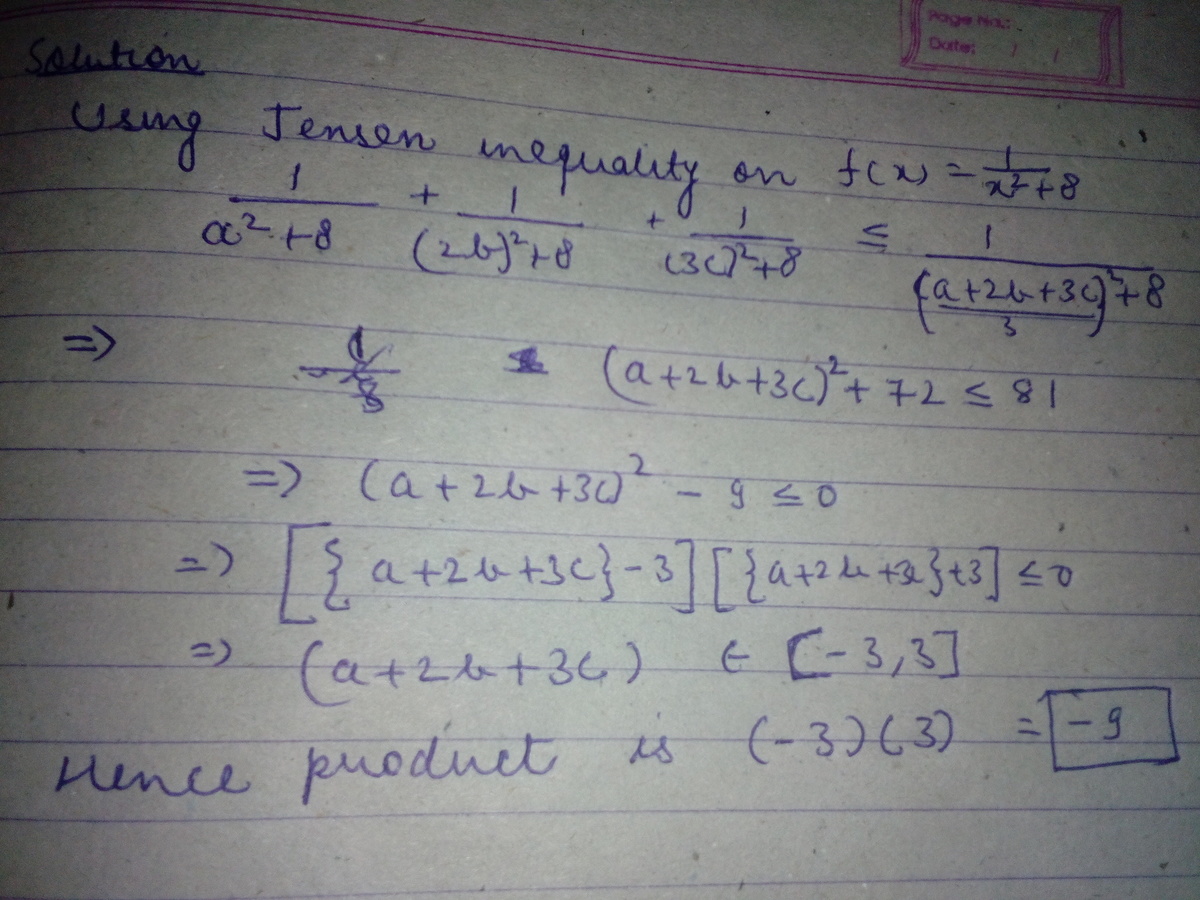Don't make mistake
Given that a , b and c are real numbers satisfying a 2 + 8 1 + 4 b 2 + 8 1 + 9 c 2 + 8 1 = 3 1 . Find the product of the minimum and maximum value of the expression below. a + 2 b + 3 c
The answer is -9.
This section requires Javascript.
You are seeing this because something didn't load right. We suggest you, (a) try
refreshing the page, (b) enabling javascript if it is disabled on your browser and,
finally, (c)
loading the
non-javascript version of this page
. We're sorry about the hassle.
2 solutions
Can you further explain it, cause I'm not good at Jensen's Inequality
Log in to reply
This may help you.
Further I have edited the solution.
Please explain, how can you use jensen's inequality even though the function is not purely convex or purely concave...?
Let a 2 + 8 = 4 b 2 + 8 = 9 c 2 + 8 = 1 / 9 so sum will become 1 / 3 so a = ± 1 ; b = ± 2 c = ± 3 so maximum value is 3 and min is − 3 then product is − 9
Why must a 2 + 8 = 4 b 2 + 8 = 9 c 2 + 8 ?
Can you tell why it happens to be max and min when they are equal?
Using Jensen inequality on f ( x ) = ( x 2 + 8 1 ) with x i = a , 2 b , 3 c we get , ( a + 2 b + 3 c ) 2 ≤ 9 ,Hence product of maximum and minimum value of a + 2 b + 3 c is − 9